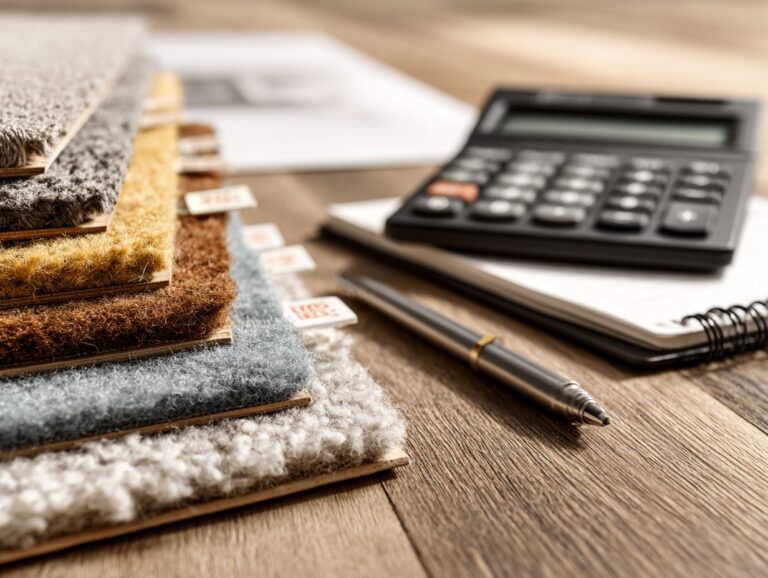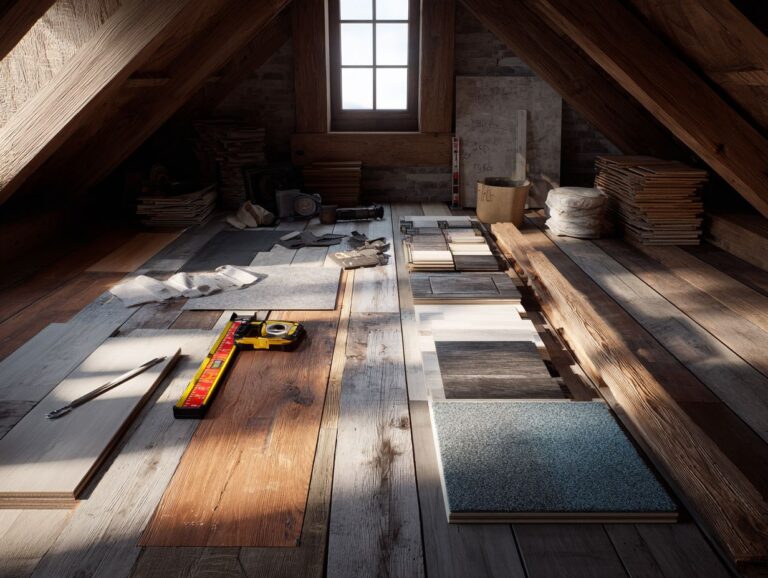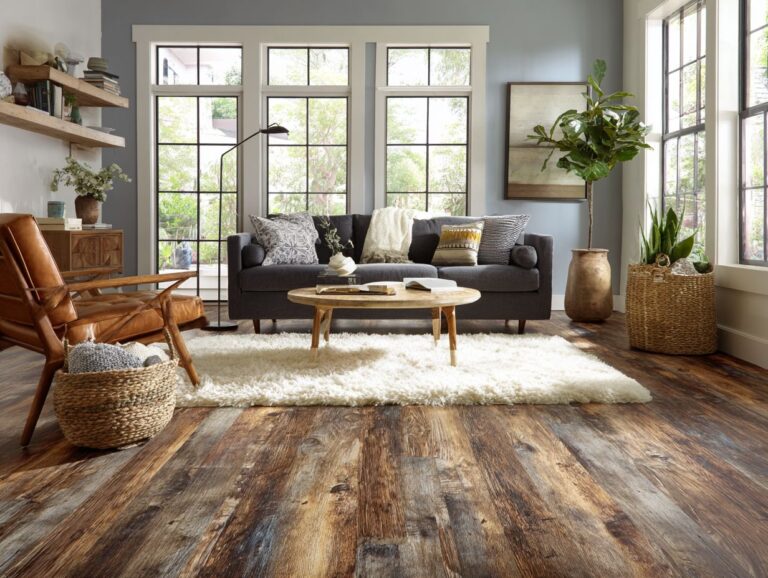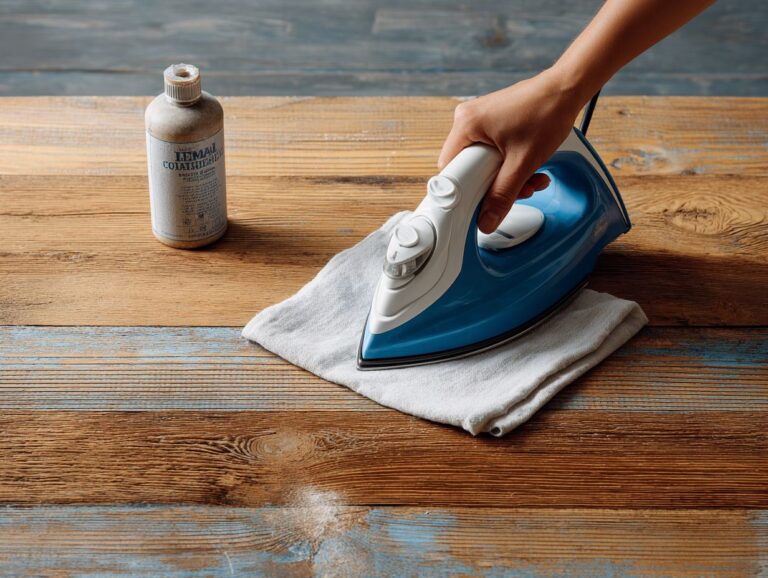Commercial Floor Care for Residential Use
Contents
- Introduction to Commercial Floor Care
- Residential Floor Care Market Statistics 2024
- Types of Flooring Suitable for Commercial Care
- Benefits of Using Commercial Floor Care Products
- Essential Tools and Equipment
- Cleaning Techniques for Different Floor Types
- Safety Considerations
- Frequently Asked Questions
- What is meant by commercial floor care for residential use?
- Why should I consider using commercial floor care for my residential property?
- What types of floors can be serviced with commercial floor care for residential use?
- Do I need to move my furniture before commercial floor care services are performed?
- Are there any eco-friendly options for commercial floor care for residential use?
- How often should I schedule commercial floor care services for my residential property?
Introduction to Commercial Floor Care
Improve your home by using commercial floor cleaning methods suitable for households. Businesses such as KBS and ServiceMaster Clean offer expert floor cleaning services right at your location, making sure your hard floors and carpets look fresh and clean. By using high-quality products and techniques, you can get excellent results in taking care of your home. This article will explain the benefits of using top-grade floor care products, helping you make informed choices for your flooring requirements.
Key Takeaways:
Definition and Importance
Commercial floor care means cleaning and maintaining business floors to keep them looking good and lasting longer.
Successful cleaning of commercial floors requires different techniques suited to each type of flooring. For instance, hardwood floors benefit from regular sweeping and occasional deep cleaning using pH-neutral cleaners.
Meanwhile, tile floors require consistent scrubbing and the use of sealants to prevent grout staining. Regular maintenance helps improve appearance and lowers the chance of slip and fall accidents, which is important for meeting OSHA rules.
Investing in professional services or using equipment like floor buffers and extractors helps maintain hygiene, creating a safer, more appealing environment for employees and customers alike.
Difference Between Commercial and Residential Floor Care
Commercial floor care is different from residential cleaning because it uses specific methods and tools for busy spaces and various types of floors.
For example, companies often use machines for cleaning vinyl or tile floors that scrub and dry the floor in one go. Regular upkeep is important; using microfiber mop systems can help decrease dust accumulation between thorough cleanings.
Some businesses might choose ServiceMaster Clean for occasional maintenance, while KBS provides daily cleaning to keep facilities spotless. Selecting the right provider depends on the size of the space and cleaning frequency-consider factors like responsiveness and service options to match your specific needs.
Residential Floor Care Market Statistics 2024
Residential Floor Care Market Statistics 2024
Resilient Flooring Market: Market Performance
The Residential Floor Care Market Statistics 2024 provides a comprehensive view of the Resilient Flooring Market, emphasizing sales, volume, and market share. The data shows how the industry is performing, which is important for stakeholders who want to know how the market works and plan their strategies.
Market Performance data indicates that 2023 resilient flooring sales reached $8.546 billion, with a notable 9.7% decrease from 2022. This downturn suggests potential challenges such as economic factors affecting consumer spending or increased competition. Additionally, the 2023 resilient flooring volume was 5.768 billion units, marking a 7.1% volume decrease from the previous year. The drop in both sales and quantity indicates that demand is shrinking or the market is full, leading companies to come up with new ideas or reconsider their market plans.
Market Share details provide further insights. The resilient market dollar share is 34%, and the volume share is 35.55%. These figures demonstrate the market’s significant hold in the flooring industry, indicating that despite the decline, resilient flooring remains a major player. Within the residential segment, resilient flooring commands a 58.8% dollar share and a 48.6% volume share, highlighting its dominance in home applications. Resilient flooring is a favorite among homeowners because it lasts a long time, works well in different spaces, and looks good.
The Residential Floor Care Market Statistics 2024 highlights the significance of durable flooring in the larger flooring market, despite drops in sales and quantity. The data suggests that stakeholders need to focus on innovation, quality, and customer engagement to maintain and grow their market share. Knowing what consumers like and keeping up with changes will be important in managing the difficulties and chances in this sector.
Types of Flooring Suitable for Commercial Care
Various commercial floor types need specific cleaning methods to keep them looking good and lasting long.
Hardwood Floors
Hardwood floors, prized for their durability and aesthetic appeal, require specific cleaning methods to avoid damage and maintain their shine.
To keep hardwood floors looking their best, use a microfiber mop with a suitable cleaner designed for wood. To prevent too much water, wet the mop lightly instead of immersing it fully.
Clean high-traffic areas weekly, while less-used spaces can be managed bi-weekly. Employing a HEPA-filter vacuum helps remove dirt without scratching surfaces; models like the Shark Navigator or Dyson V11 work well.
To clean thoroughly, use steam mops suitable for hardwood floors and do this every few months to restore the shine.
Vinyl and Linoleum
Vinyl and linoleum floors are popular in commercial settings due to their resilience and ease of maintenance, yet they require regular upkeep to prevent wear and tear.
To maintain their appearance, establish a routine cleaning schedule that includes daily sweeping or vacuuming to remove dirt and debris, which can scratch the surface.
Use a microfiber mop along with a pH-neutral cleaner designed for vinyl to avoid chemical damage. For deeper cleans, consider using a specialized scrubber monthly.
Implement a preventive maintenance strategy, such as placing mats at entrances to capture moisture and grit, which can significantly prolong the life of your floors.
Tile and Stone
Tile and stone flooring, frequently used in commercial kitchens and bathrooms, demand unique cleaning strategies to address grout and maintain sheen.
To effectively clean tile and stone flooring, consider these techniques:
- Use an extractor for powerful soil removal.
- Use a steam cleaner for sanitization.
- To remove tough stains, use a grout cleaner or mix vinegar with baking soda.
Regular thorough cleanings are important, particularly in damp places where mold can grow easily. Implementing this routine monthly can significantly extend the life of your floors and keep them looking pristine, reducing the need for costly repairs down the line. For an extensive analysis on this subject, our comprehensive guide to natural stone floor care provides valuable insights on sealing and cleaning methods.
Carpet
Commercial carpeting requires routine maintenance and specialized cleaning methods to handle stains and accumulation of dirt effectively.
Two popular methods for deep cleaning include hot water extraction and encapsulation.
Hot water extraction, often called steam cleaning, involves injecting hot water mixed with cleaning agents into the carpet fibers and then extracting it along with dirt-ideal for heavily soiled carpets.
Encapsulation uses a polymer that changes dirt into a fine substance, making it easy to vacuum and good for frequent cleaning without making the carpet wet.
Deep clean your carpets every 6 to 12 months and vacuum them routinely to make them last longer.
Benefits of Using Commercial Floor Care Products
Using commercial floor care products makes cleaning easier and helps floors last longer.
Durability and Longevity
High-quality commercial cleaning products can significantly extend the lifespan of flooring materials, saving businesses money over time.
Regular use of these products can lead to a reduction in replacements and repairs. For instance, treated floors can last up to 20% longer than untreated ones.
According to industry studies, hardwood floors maintained with professional-grade cleaners can exceed 30 years of life, while untreated ones often need refinishing after just 10-15 years.
Tools like the ProTeam Super CoachVac and Bona Hardwood Floor Cleaner help with cleaning tasks, keeping floors in good shape and cutting down on expenses over time.
Choosing the right cleaning supplies keeps your floors looking good and makes them last longer.
Enhanced Cleaning Efficiency
The right commercial cleaning supplies increase efficiency, allowing maintenance teams to clean larger areas in shorter periods.
For the best results, include a few important products in your cleaning routine.
- Start with an autonomous scrubber, like the Tennant T7, which can cover up to 35,000 square feet in an hour, significantly reducing manual labor.
- Pair this with a specialized floor buffer, such as the Clarke CFP Pro, known for its fast drying times and ease of use.
- Using eco-friendly cleaning solutions, such as Method’s commercial floor cleaner, can improve the team’s work speed while adhering to sustainability standards.
These tools make cleaning easier and increase productivity.
Cost-Effectiveness
Investing in quality commercial floor cleaning products leads to significant cost savings by reducing labor hours and minimizing damage to flooring.
Using effective products like pH-neutral cleaners and microfiber mops helps businesses clean better.
For instance, a pH-neutral cleaner reduces buildup and prolongs the life of your flooring. A microfiber mop picks up dirt well with less water, making cleaning quicker and cutting down on cleaning fluid.
If you currently spend $500 a month on cleaning, switching to these products could decrease labor time by 20%, leading to potential monthly savings of $100.
Essential Tools and Equipment
Using the right tools and equipment is important for good commercial floor care, affecting both how well the job gets done and the final outcome.
Commercial Floor Scrubbers
Commercial floor scrubbers are essential for efficient and effective cleaning of large floor areas, especially in high-traffic zones.
There are two main types of scrubbers: ride-on and walk-behind.
Ride-on scrubbers, like the Tennant T300, are ideal for larger spaces, providing faster coverage at an average cost of $25,000.
Walk-behind scrubbers, such as the Minuteman G4, are more suitable for smaller areas or tight spaces, typically priced between $3,000 and $7,000.
Companies like Sunbelt Rentals offer rental options, which can be a cost-effective solution, allowing businesses to select the right scrubber without a large upfront investment.
Extractors and Steam Cleaners
Extractors and steam cleaners are critical for deep cleaning carpets and hard surfaces, ensuring thorough removal of dirt and contaminants.
When choosing equipment, check out the Bissell Big Green Professional ($399) for heavy-duty cleaning or the McCulloch MC1270 ($150) steam cleaner for use on various hard surfaces.
For a restaurant case study, a small eatery saved hours of manual scrubbing by switching to a steam cleaner, achieving brilliant results and reducing labor costs significantly.
Consider renting as well; usual costs are $30-$50 per day for powerful units, which makes it cost-effective for short-term use without having to buy one.
Floor Buffers and Polishers
Floor buffers and polishers bring back the shine and safeguard surfaces, helping maintain various types of commercial floors.
Buffers, such as the Tennant 5700, are ideal for high-traffic areas as they effectively remove scuffs and restore shine quickly. However, polishers such as the Hako-Getinge series are designed to provide a glossy surface, making them suitable for polishing marble or other delicate materials.
For best results, assess your flooring type and choose equipment accordingly. Many suppliers, like ULINE or Home Depot, offer rentals at reasonable rates, allowing you to experience different machines before purchasing. This can save money while ensuring you select the right tool for your needs.
Cleaning Techniques for Different Floor Types
Each type of flooring requires particular cleaning techniques to stay in good condition and look great.
Hardwood Floor Maintenance
Maintaining hardwood floors involves careful techniques to prevent scratches and preserve their natural beauty.
Start by sweeping or vacuuming regularly to eliminate dust and debris, which can cause scratches.
Use a microfiber mop with a pH-neutral cleaner specifically designed for hardwood. For deeper cleaning, consider using a damp mop with plain water, ensuring to immediately dry any wet spots to prevent warping.
Schedule a thorough cleaning every two months and apply a specific product to gently polish the hardwood floor annually to maintain its appearance.
Also, place felt pads under furniture legs to avoid scratches when moving pieces around.
Vinyl and Linoleum Care
Vinyl and linoleum care entails regular cleaning and occasional deep cleaning to maintain their appearance and durability.
Begin with a weekly cleaning routine using a pH-neutral cleaner to avoid damaging the surface. To remove tough stains, mix baking soda and water to clean marks without scratching.
Once a month, perform a deeper clean by mopping with a solution of vinegar and warm water, which helps to restore shine. Use vinyl floor polish every three to six months to keep the surface from wearing out.
This mix keeps your floors bright and durable.
Tile and Grout Cleaning
Tile and grout require specialized cleaning methods to tackle stains and prevent buildup of grime.
To effectively clean tile and grout, consider techniques like steam cleaning and chemical treatments.
Steam cleaning uses hot steam to remove dirt and grime without strong chemicals, making it more environmentally friendly. Alternatively, specific grout cleaners, such as Zep Grout Cleaner or Goo Gone Grout & Tile Cleaner, can break down stubborn stains.
After cleaning, it is important to seal the grout; products like Aqua Mix Sealer can help prevent stains, keeping your tile looking good and simple to clean over time.
Carpet Cleaning Methods
Effective carpet cleaning methods are essential for maintaining the appearance and hygiene of carpeted areas in commercial settings.
Two popular methods include:
-
Hot water extraction, often referred to as steam cleaning, is highly effective for deep cleaning carpets by using hot water and detergent to dissolve dirt. This method works best in high-traffic areas, typically requiring 24 hours of drying time.
-
On the other hand, dry cleaning uses chemical solvents, which is good for delicate fabrics or when fast drying is needed-usually ready for use within a few hours.
Depending on your carpet types and business needs, you may choose either method for optimal results.
Safety Considerations
Focusing on safety when using commercial cleaning products is key to avoiding accidents and following the rules.
Proper Use of Chemicals
Using EPA-approved chemicals is essential for maintaining safety and adherence to hygiene standards in commercial cleaning.
- Start by carefully reading the product labels to determine the appropriate dilution ratios, which can vary by chemical and task. For instance, if using a general-purpose cleaner, a common dilution is 1:10 for surface cleaning.
- Always mix chemicals in a well-ventilated area and use personal protective equipment (PPE) such as gloves and safety goggles. When using, apply with a spray bottle to cover evenly, and scrub spots where dirt is visible. For those focused on eco-friendly approaches, green cleaning solutions offer excellent alternatives without compromising safety.
- Maintain a record of your cleaning supplies to monitor chemical amounts and follow safety rules.
Protective Gear and Equipment
Wearing appropriate safety equipment is important for cleaning workers to shield themselves from chemicals and physical threats.
Essential protective gear includes:
- Gloves, which shield your hands from harmful substances,
- And masks that prevent inhalation of toxic fumes or dust.
Use chemical-resistant gloves when handling strong cleaning agents to avoid skin irritation. Wearing goggles is important for protecting your eyes from splashes, especially in places where bleach or acidic cleaners are common.
Wear each piece of equipment according to the dangers involved; for example, when spraying disinfectants, use a mask and goggles for complete safety.
Frequently Asked Questions
What is meant by commercial floor care for residential use?
Commercial floor care for homes means using professional cleaning tools and methods, normally used in businesses, to clean and maintain floors in houses. This includes deep cleaning carpets, stripping and waxing hard floors, and other specialized services.
Why should I consider using commercial floor care for my residential property?
Commercial floor care services offer a higher level of cleaning and maintenance than typical residential cleaning methods. This can prolong the lifespan of your floors and improve the appearance and hygiene of your home.
What types of floors can be serviced with commercial floor care for residential use?
Commercial floor care services can be used on a variety of flooring types, including carpet, hardwood, tile, and vinyl. These services are customized for each kind of flooring to provide a complete and efficient cleaning.
Do I need to move my furniture before commercial floor care services are performed?
In most cases, it is recommended to move furniture and other items off of the floor before commercial floor care services are performed. This allows for a more thorough cleaning and prevents any potential damage to furniture or the floor.
Are there any eco-friendly options for commercial floor care for residential use?
Yes, there are many eco-friendly commercial floor care services available for residential use. These use environmentally friendly products and methods to clean and maintain floors without harmful chemicals.
How often should I schedule commercial floor care services for my residential property?
The frequency of commercial floor care services will depend on the type of flooring, amount of foot traffic, and level of use. Generally, it is recommended to schedule these services at least once a year, but high-traffic areas may require more frequent cleanings.




